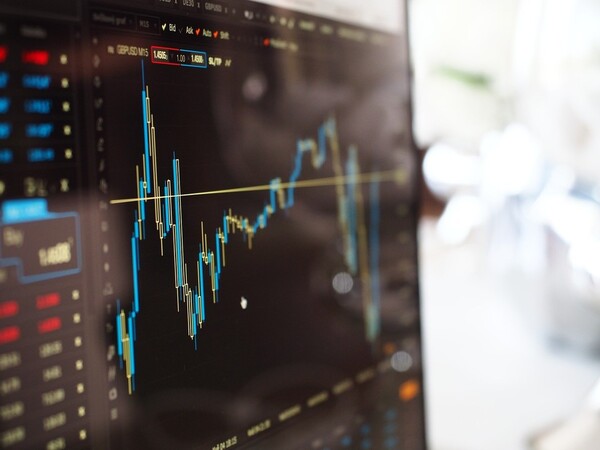
The government has decided to ban short selling temporarily. It came as a positive response to demands from retail shareholders, who have pointed to short selling as a major culprit for stock price declines.
Now, the attention is on how it will affect the stock prices of biotech companies, market analysts said.
The Financial Services Commission (FSC) and the Financial Supervisory Service (FSS) said Sunday that they would prohibit short selling for all stocks on the Korea Stock Exchange (KRX) from Monday to June 6, 2024.
Short selling has been allowed for stocks included in the KOSPI 200 and KOSDAQ 150. However, it will be banned for all stocks on the KOSPI, KOSDAQ, and KONEX for the next eight months.
The government explained that the uncertainty in the Korean economy, highly dependent on the outside world, is growing as geopolitical risks, including the Israeli-Hamas armed conflict, have increased amid a persistently high-interest rate environment and slowing growth in the global economy.
It also pointed out that the volatility of the Korean stock market in the second half of this year has increased to the highest level among major stock markets, adding to market anxiety.
The government also said it is highly concerned about the fair price formation of the domestic stock market due to the repeated detection of illegal short selling by foreign institutional investors.
It added that illegal short selling, especially the recent cases of large-scale illegal short selling by global investment banks (IBs), hinders the fair price formation of the securities market and undermines market confidence.
The government declared that it would fundamentally resolve the "tilted playing field" between institutions and individuals to ensure that the unfairness issues caused by short selling are not repeated.
The government reiterated its intention to conduct a full investigation of global IBs through a special investigation team on short selling. It will actively consider various measures to prevent borrowing-free -- or naked -- short selling and, if necessary, push for legislation in close consultation with the National Assembly.
Officials added that the decision to resume short selling would be based on the overall conditions, including market trends and implementing measures to improve the short-selling system.
"The foremost goal of capital market policy is to protect investors and gain the market’s trust by creating a fair and efficient market," FSC Chairman Kim Joo-hyun said. “The government will do everything it can to ensure that the short-selling system becomes one that all investors can trust."
FSS Governor Lee Bok-hyun said, "We have detected intentional naked short selling by two global IBs. The FSS will launch a special short-selling investigation team with 20 people. We are still investigating some global IBs, and the special investigation team will conduct a full investigation of about 10 global IBs that account for a significant portion of short-selling transactions."
A ban on short selling has been an ongoing issue in the pharmaceutical and biotech industries. In particular, individual shareholders who have invested in biotech companies have argued that pharmaceutical and biotech companies are prime targets for short sellers because their stock prices are highly sensitive to information, such as the success of clinical trials, and their stock prices fluctuate widely. Venture capitalists (VCs) and venture capitalists have also supported such allegations.
"Short selling and statutory losses (loss from continuing operations before income taxes) are the main reasons Korean biotech companies are not fairly valued. Unlike overseas, the domestic short-selling system is a tilted playing field that favors institutions,” said Hwang Man-soon, CEO of Korea Investment Partners, at the 2023 KoNECT International Conference (KIC) last month.
According to the information data system operated by the KRX, there are 12 biotech companies among the top 50 short interest holders on the KOSDAQ as of last Wednesday. The large holders of each company's balance (holding more than 0.5 percent of the listed shares) are Goldman Sachs International, Merrill Lynch International, Morgan Stanley International P.L.C., and JP Morgan Securities.
Of those, HLB was the most heavily shorted. HLB's outstanding short interest was 9.34 million shares, accounting for 7.24 percent of the total number of shares outstanding, worth about 271.8 billion won ($208.7 million). It marked the highest share of short interest across all sectors, including bio and healthcare. HLB also announced plans to move to the KOSPI, saying that short sellers were undervaluing the company.
Humasis was the second most shorted stock. The number of shares outstanding on Humasis was 9,029,655, representing a short interest of 6.98 percent (about 18.1 billion won). Other stocks in the top 50 include STCube, NKMax, LegoChem Biosciences, Vaxcell Bio, Nature Cell, Cellivery, HLB Life Sciences, HLB Bio, L&C Bio, and Celltrion Pharm.
Shinpoong Pharm had the highest share of short interest among pharma and bio companies, while Celltrion, SK bioscience, Yuhan Corp., and SK biopharmaceuticals were also among the top stocks on the KOSPI.
As many biotech companies are facing funding difficulties due to high interest rates and deteriorating investor sentiment, industry executives and investors are paying attention to whether the government’s decision to ban short selling will bring a boost to the industry.

